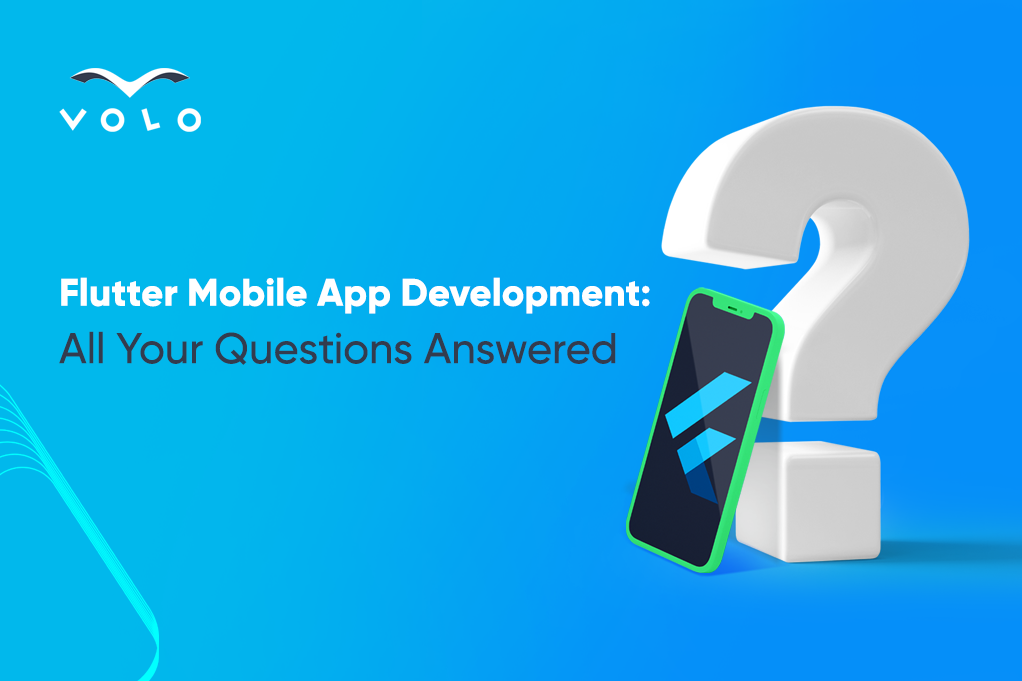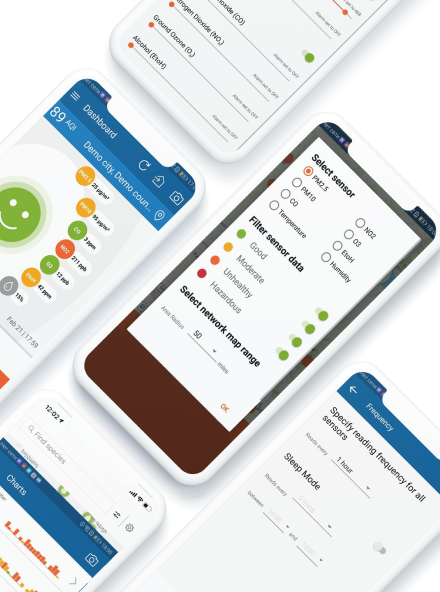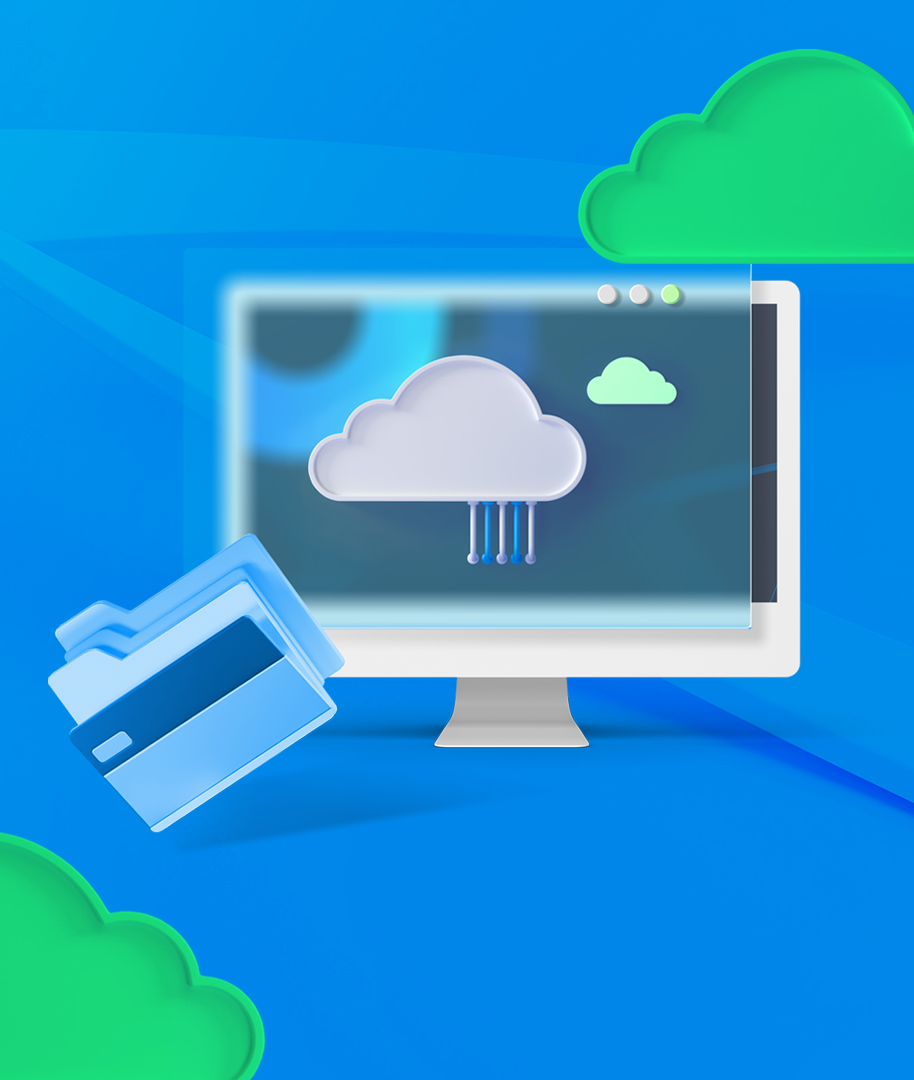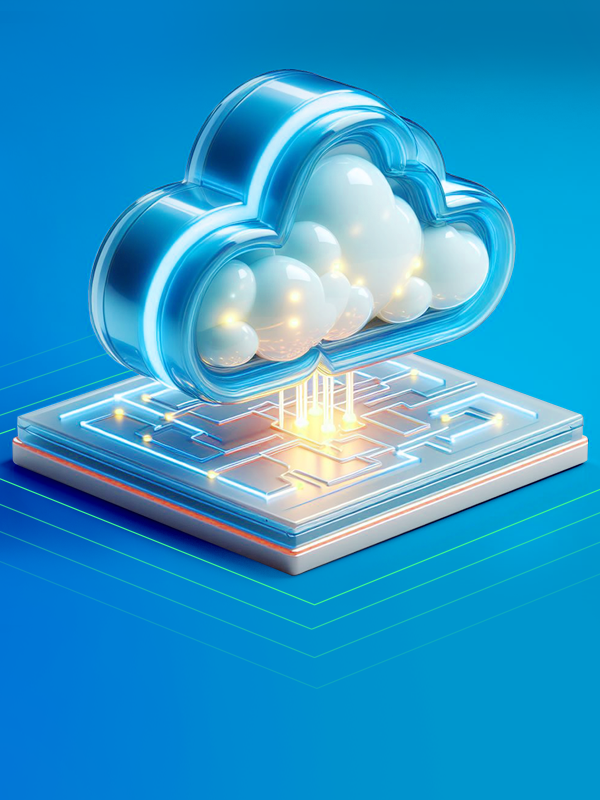
Flutter Mobile App Development: All Your Questions Answered
17 Nov 2022

Flutter is getting all the attention nowadays. We have gathered a list of the most common questions we get asked about Flutter. Let’s dive right in:
1. What is Flutter?
Flutter is an open-source software development kit (SDK) created by Google and officially released in 2018. Flutter uses Dart programming language which has also been developed by Google. The technology is used for building applications for mobile, web, and desktop from a single codebase.
2. What does a Single Codebase mean?
Your tech team writes one code which can be used for all platforms. You don’t need to hire two teams to make your app available on, let’s say, iOS and Android. A single Flutter codebase can be used for both of these mobile platforms, as well as for web, desktop, and other systems.
This helps you reduce the development time, save resources, and launch your product earlier than your competitors.
3. What platforms does Flutter support?
Flutter provides multi-platform support:
- Android
- iOS
- Web
- Desktop
- Linux
- macOS
And, of course, a single codebase to run your app on all these platforms.
4. What’s Flutter like performance-wise?
Let’s put it this way, Flutter provides Native-like performance. It’s a well-known fact that apps built with native technologies boast high speed, responsiveness, and efficiency. However, native app development can just “take up too much space” sometimes on so many levels: the need for two different teams to write separate codes for iOS and Android, the resources required to invest in this, the prolonged development cycle, etc.
Flutter allows you to kill two birds with one stone - you get flexibility and high quality in a single package. As a result, you develop a project according to the highest standards while saving time, resources, and shooting into the market much earlier than your competitors.
Note: We are not in any way trying to diminish the importance of Native app development. It should be mentioned that despite all its benefits, Flutter is not always the most effective solution. There are certain types of apps that would be better off with native technologies. That’s why the smart way is to consider the specifications and requirements of both your project and your business, consult the right tech partner, and only thereafter make the final selection of the software technology.
5. How do I know if Flutter is the right choice for me?
Simply put, if your app does not have many complex hardware dependencies or UI requirements that are specific to a single platform then Flutter can be the best choice for you.
“Flutter is a UI framework and it does well when your task is related to UI and business logic, but not too well when you are dealing with scary native hardware APIs.”
- Robert Apikyan, Senior Flutter Developer at VOLO, Team Lead
Other than this, you should consider all the possible factors and nuances involved in mobile app development, including but not limited to:
- Your business goals
- Budget
- The specific features and functionalities of your app
- Deadlines
- User expectations
- Future maintenance
Your software partner should be able to guide you through the whole process and show you the path to the right decision when it comes to technology selection.
Beyond all, Flutter, in the hands of the right developers and tech specialists, will make beautiful and easy-to-use apps for your target audience.
6. Can I have peace of mind with Flutter when it comes to User Experience?
Flutter apps come with seamless user experience thanks to the vast number of available widgets, layouts, and themes. Moreover, you can find widgets for almost any industry, customize and modify them according to your needs, or even create your own. These tools make your app look good and function better without annoying your users with bugs or slowdowns.
7. Is Flutter development affordable?
As already mentioned, a single Flutter codebase will make your app available on all platforms. This highly cuts the development costs as you don’t have to pay two separate teams to write two different codes. So, yes, Flutter app development is indeed affordable as compared to other technologies, hence if you are on a tight budget, Flutter is the right choice for you.
8. Is Flutter secure?
Flutter is Google’s product and the tech giant has made sure to implement the highest security standards into its technology. Regular security check-ins and updates are a given. The best proof of Flutter’s security are the big player names that use Flutter in their software solutions such as Airbnb, Alibaba, eBay, and Uber.
9. Is Flutter good for building an MVP?
Flutter’s affordability and speed make it a great choice for building an MVP. If you want to test your product first and see if it’s what your customers need then Flutter is the way to go.
10. Will Flutter eventually replace Native technologies?
The short answer is: no.
The long answer is: it is true that Flutter, despite being a relatively new technology, has gained enormous popularity in the past years, however, it is not going to replace native app development, at least, not in the foreseeable future. That’s because Native technologies bring unique value and quality to the table and sometimes can be a better choice for certain projects than Flutter.
Flutter has acquired its solid place in the market thanks to its flexibility and efficiency and will remain there for a long time. The same, though, holds true for native app development. Both are here to stay.
11. What does the future hold for Flutter?
Google releases regular updates of Flutter, every time with improved features and functionalities. Flutter 3 was introduced in May 2022. Now the technology supports not only iOS, Android, Windows, and web, but also Linux and macOS.
Dart, Flutter’s underlying programming language is also constantly updated and perfected to the best standards.
12. What are the advantages of Flutter?
Since we have listed pretty much all the beneficial features of Flutter above, we will just give you a quick summary of all its advantages here:
- Single codebase for all platforms
- Multi-platform support
- Cost efficiency
- High security
- Faster development cycle and reduced time to market
- Modern UI approach
- Easy integration into a native project
- Minimum need for development and QA resources
- Easy maintenance with faster fixing of bugs and implementation of updates
- A wide array of widgets
- Huge support from Google and the Flutter community
- Solid animation support
Considering the constant improvements that Google provides Flutter with, you can expect this list to become longer in the future.
13. What are the disadvantages of Flutter?
Flutter does not come with a huge list of features that one would call disadvantageous. However, there are a couple of points that are worth mentioning to help you better understand how this technology works:
- Flutter doesn’t get along well with hardware APIs (camera, Bluetooth, location, etc.). However, nothing is impossible. If you have hardware dependencies and are working with Flutter, you can still use these hardware APIs by wiring up Flutter code to the appropriate platform APIs. You might find yourself dealing with a little more maintenance requirements but it’s nothing too complex.
- Another drawback of Flutter is that your app’s final archive size ends up being about 15-20 megabytes more than that of the native apps. This happens because of the extra engine code that is shipped with the app. However, the added size comes with all cross-platform apps, not just with Flutter. And at the end of the day, it is not that big of an issue, if the product you offer meets the needs of its users.
With all the benefits that Flutter comes with, the above listed points become a slight inconvenience that go almost unnoticed, provided Flutter is the right tool for your project.
14. What is the hot reload feature about?
Flutter’s hot reload feature enables the automatic updating of the UI content as soon as any corresponding code changes are implemented. Thanks to this, you can easily test different features and functionalities on your app to check its performance and user feedback, as well as build UIs and fix bugs faster.
15. Can I integrate Flutter into my existing Native project?
Yes. Flutter can be easily integrated into a native project. If you have been building a native app but halfway through the project you ran out of resources or changed your mind for any possible reason, you can switch to Flutter and continue building your app with a single codebase.
16. Does Flutter provide easy access to internationalization features?
Flutter helps your app go global in a much easier and faster way than you could imagine. Flutter’s widgets support about 78 languages, multiple currencies, units of measure, and various layout options that will help you internationalize your app effortlessly.
17. Why is Flutter using the Dart programming language?
As stated by Flutter team, they found Dart to be the most suitable language for Flutter because of several factors:
- Dart helps developers be more productive and efficient without sacrificing quality. It’s easy to learn and implement. And since one of the widely discussed benefits of Flutter is the saving of time and resources, they needed a programming language that would contribute to it.
- Another reason why Flutter uses Dart is because the latter is an object-oriented language. The majority of developers are familiar with object-oriented development which makes it easier for them to learn how to work with Flutter. Besides, object-oriented languages are the go-to choices when it comes to creating visual user experiences.
- Dart provides high performance and predictability which can come quite handy for all the parties involved in the process of mobile app development. You don’t want unexpected failures or pauses.
- And last but not least, the Dart community is quite committed to contributing to the improvement of the language for Flutter.
Since both Flutter and Dart were created by Google, they are always under the guidance of the tech giant.
18. Overall, how much time and resources will I save with Flutter?
Based on our experience, you can save up to 30-35% of your time and resources if you use Flutter for the development of your project. However, this holds true only if your project is perfectly fit for Flutter which means:
- Your future app does NOT heavily rely on platform-specific features and/or frameworks. This needs to be evaluated by your tech team.
- Your app does NOT have high device hardware dependencies.
There will also be nearly 40% less need for developers and QAs.
19. Are there enough Flutter developers available in the market?
The Flutter community is one of the fastest growing communities out there. Besides, considering that Flutter doesn’t come with a steep learning curve, it’s quite easy for developers to switch from, say, native technologies to Flutter.
There have been nearly half a million apps built with Flutter by now and this number is rapidly increasing. With such high demand for Flutter, there will surely not be a lack of available talent in the market.
20. Is Flutter mature enough for web development?
Flutter web is still quite new and might not be able to compete with the existing web technologies that have been in use for decades. If you want to choose Flutter for web development, it’s best to use it for building landing pages or admin dashboards that are not going to be directly used by users and don’t demand many complex functionalities.
21. What to do when I’m facing a difficult choice between Flutter and Kotlin Multiplatform Mobile (KMM)?
There are a number of factors that you need to consider in order to understand which technology fits your project better - KMM or Flutter. Some of these factors are:
- Performance
- Integration with 3rd-party libraries and SDKs
- Backend development options
- Development resources
- Your project’s specific needs and goals
- UI experience
Let’s now have a quick look at KMM in comparison with Flutter.
One of the main benefits of Kotlin is that it compiles natively in the chosen platform. This means that performance-wise, KMM apps perform extremely well.
“Unlike with Flutter, with KMM you are able to bypass iOS-specific hardware-related issues, because you handle them natively as a UI component.
However, while it is a great solution for cross-platform development, we do have to keep in mind that iOS developers run the risk of hitting some snags when working with KMM. Oftentimes, a change pushed by an Android developer causes a crash in iOS because it doesn’t support running Kotlin code directly.” (Avetik; Mobile Developer)
When it comes to the integration with 3rd-party libraries, Flutter is doing quite well. As a matter of fact, Google makes sure to effectively enrich the technology with the needed libraries. As for KMM, it might not come with a huge supply of libraries since it’s a relatively new technology. However, it should be noted that Kotlin Multiplatform does not require many 3rd-party libraries as its functionalities are mainly focused on the business logic end of things.
What concerns backend development, Flutter can be used for backend as well as for frontend. The latter, though, is Flutter’s main focus. Firebase is used as another option for backend development with Flutter.
KMM can also be used for backend development but it is not that common to write backend code with this technology.
Wrapping up, we recommend that you choose Flutter if you need to release your project quickly and don’t need platform-specific UI features. However, if you are planning to build an app with a rich business logic and an interface with more customized functionalities then KMM is the way to go.
Both of these technologies have the potential to help you get a high-quality app while at the same time saving your time and money. The secret is in finding out which one is right for your specific project.
22. Which is easier to learn: KMM or Flutter?
Flutter, as already mentioned, is based on Google’s Dart programming language. The latter is quite easy to learn, especially for those who have some knowledge of C-like languages. As for KMM, it does not come with a steep learning curve either. It is quite easy to learn, especially for Android developers. iOS developers may find it slightly difficult to pick up on KMM.
23. Are there more KMM developers than Flutter developers?
Kotlin is more popular and widespread than Dart. That's why there are more developers available in the market who know KMM than those who know Flutter. However, the Flutter talent pool is growing fast and will catch up sooner or later.
24. Which has a stronger community support: Flutter or KMM?
Flutter beats KMM in this aspect. Together with the fast-growing community support, the technology also provides its users with quick bug fixes and easy-to-use documentation from Google.
On the other hand, KMM is still relatively new in the market and needs some time to build a strong community base.
25. What are some popular apps that have been written in either Flutter or KMM?
Flutter: Google Ads, eBay Motors, Google Pay, Xianyu by Alibaba, SpaceX Go, Groupon, BMW app.
KMM: Careem, Target, VMware, Netflix.
Parting Thoughts
Should you have remaining questions about Flutter, our team would be happy to help you understand the nuances of this technology in more detail. Let’s see if Flutter is the right tool for your next project.



